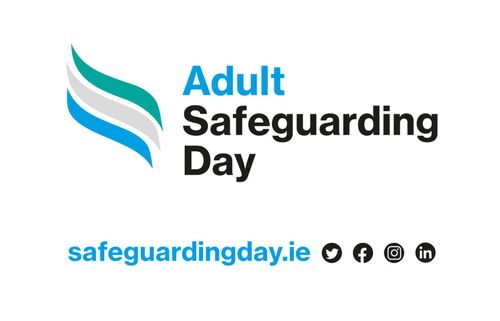New research report launched on Adult Safeguarding Day finds that less than 20% of people who experience adult abuse report it
November 11 2022, 09:50am

Less that 20% of people who experience adult abuse report it to the Gardai or a health and social care professional, while 41% have said they took no action at all – according to new RED C research announced today, Friday 11 November - Adult Safeguarding Day 2022.
Adult Safeguarding Day is a nationwide initiative to raise better understanding of safeguarding and the prevention of adult abuse. The day is coordinated by Safeguarding Ireland and supported by the HSE in partnership with a wide reach of organisations across the health, social, financial and justice sectors, including the Disability Federation of Ireland.
A survey of a representative sample of 1,000 adults carried out by RED C found that 44% of adults said that they personally had experienced abuse. Yet of those who had experienced abuse; 41% said they did nothing at all about it, and half of these said they took no action because they did not know what to do.
Just 9% reported it to the Gardaí and 9% discussed it with a health and social care professional.
Safeguarding Ireland Chairperson Patricia Rickard-Clarke said the key message for Adult Safeguarding Day was for more people to take action and report abuse.
“If there is an immediate risk of serious harm to you or another person it should be reported immediately to the Gardaí by calling 999 or 112. If there is serious but not immediate risk the local Garda station should be contacted, or the Garda confidential line at 1800 666 111.
“For an ongoing concern, there are nine HSE Safeguarding Teams across the country who are available to support people and families to address difficult circumstances and ensure that people’s safety, welfare and rights are upheld.”
The RED C research also found that 66% of people knew someone who had experienced abuse. Half of respondents said they took action by discussing it with the person, but just 4% reported the person’s issue to the Gardai and 4% discussed it with a health and social care professional.
The most common type of abuse for people to experience was emotional (32%) followed by psychological including coercive control (19%), physical (14%), sexual (11%), financial (9%) and cyber / online (7%).
The survey found that women were substantially more likely than men to have experienced emotional, psychological, physical and sexual abuse. 57% of younger women aged 18-34 reported experiencing any type of abuse compared to 35% of men. 20% of younger women had experienced cyber abuse.
The HSE National Safeguarding Office General Manager Tim Hanly encouraged more people to make contact with the HSE safeguarding Teams: “If a risk is serious and immediate the first port of call is always the Gardaí at 999 or 112. For an ongoing concern about abuse and a person’s wellbeing the HSE Safeguarding and Protection Teams are available to listen and to help tease out concerns, to give advice, to provide support and to work with people to address difficult circumstances. Contact details for the nine regional safeguarding teams are at www.hse.ie/safeguarding.”
The Minister of State at the Department of Justice James Browne welcomed the drive to encourage more people to take action against adult abuse: “Safeguarding Ireland’s mission to promote the rights of vulnerable adults and ensure their protection from all forms of abuse is incredibly important. This Government and my Department are committed to improving access to justice for all, including people who might be in a more vulnerable position because of reduced capacity.”
Adult Safeguarding Day is also encouraging greater understanding and awareness of how to prevent adult abuse – and in particular the importance of supporting the decision-making of all adults.
New laws on decision-making are expected to come into effect in early 2023 (the Assisted Decision-Making Capacity Act) and will place a greater responsibility on organisations to support the decision-making of adults who may be frail, have a physical or intellectual disability, or be after a serious accident.
Patricia Rickard-Clarke said an important element of preventing abuse is for all adults – as much as possible – to make their own care, health, lifestyle, financial and accommodation decisions, and to receive appropriate support to do so if needed.
“There was clear public misunderstanding in the RED C survey that family or loved ones should step-in and take over decision-making for someone if they face challenges in doing so. However, this is not the case, a next-of-kin has no legal authority.
“To prevent adult abuse a person should continue to make their own decisions and be supported to do so, until they have been formally assessed to no longer have capacity. Furthermore, we should all plan ahead for the future by putting in place an Enduring Power of Attorney and advance healthcare plan to ensure that our wishes are documented and will be respected."
More information is available on www.safeguardingday.ie
